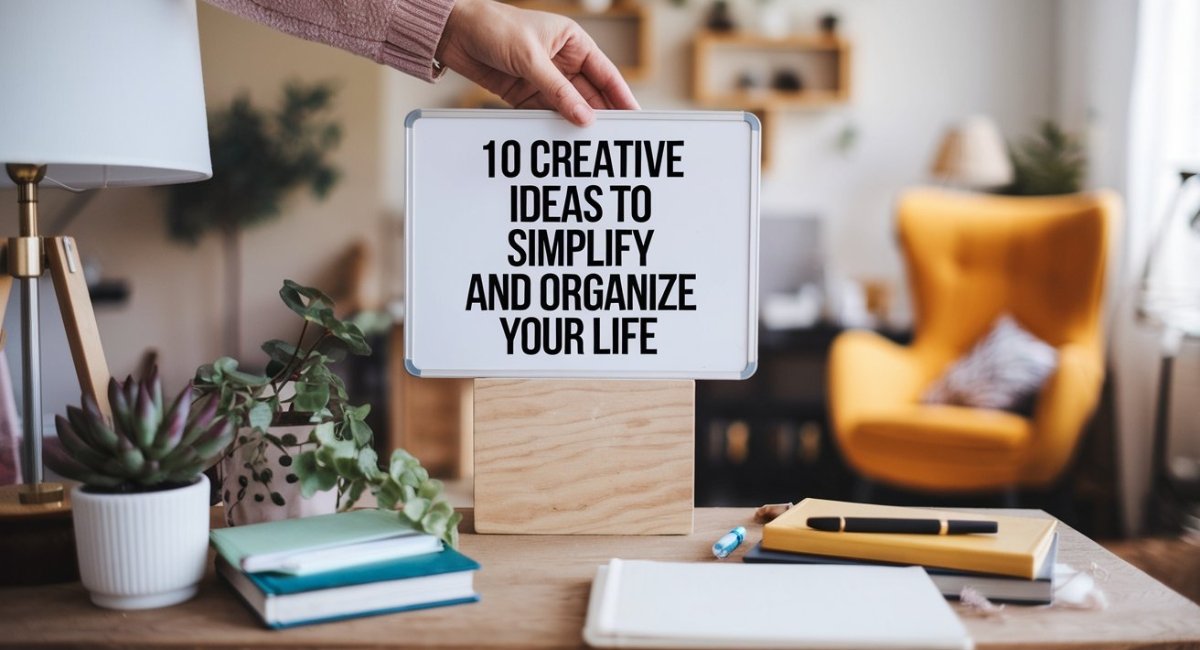How To Find Joy In Everyday Life: Examples
This post contains paid and/or affiliate links. I make a small commission at no extra cost to you. Please see our Privacy Policy.
True happiness isn’t just a goal or an outcome. It’s more about how we live and interact with the world.
While things like genetics and life events are out of our control, we can still find ways to feel happier daily. By using mindful techniques, we can increase our joy in life.
Studies show that chasing material things doesn’t make us happier. It can make us feel more depressed and anxious.
But by cultivating gratitude, practicing mindfulness, and accepting simplicity, we can find joy in everyday moments—the moments we often miss.

The Pursuit of Happiness: A Paradox
Happiness and joy are not the same thing. Happiness is a quick feeling triggered by events around us, while joy is a deeper, longer-lasting feeling of well-being. Knowing the difference helps us find true happiness.
Understanding the Difference Between Happiness and Joy
Happiness is a feeling we get from events and experiences. It’s linked to reaching goals or getting what we want.
On the other hand, joy is being in a state that goes beyond good and bad days. It’s more about being happy inside than about what’s happening outside.
Factors Influencing Our Ability to Experience Joy
Many things affect how much joy we feel, like our genes, life events, and how we think and act. We can’t control some feelings like anger or fear. But, we can work on feelings like being thankful or content, which help us feel joy.
Trying too hard to be happy can make it harder to find. This is because we often return to feeling the same level of happiness nopens. Also, looking forward to the future can cause us to matter and miss out on joy in the present.
However, focusing on the bad times can make us value everyday joys more, leading to a deeper sense of joy now and in the future.

Mindful Strategies for Creating Lasting Joy
To find lasting joy, we need to use mindful strategies. This means setting realistic goals, understanding our feelings, and being kind to ourselves. Studies show that hiding bad feelings can make us less happy and stressed.
Setting Realistic Expectations
We should have realistic hopes for joy. Thinking we must always be happy can make us sad and upset. It’s okay if our feelings change. By being realistic, we accept life’s ups and downs and find joy in the journey.
Acknowledging and Accepting Emotions
Feeling many emotions is normal. Letting ourselves feel all our emotions helps us grow stronger and live fully. If we hide our feelings, we miss learning from them and moving on.
Embracing Self-Compassion
Self-love and kindness are key to lasting joy. We should be gentle with ourselves, not hard.
“The capacity for joy can be trained and developed, making it a primary component of psychological well-being.”
Being kind to ourselves builds a strong base of self-acceptance. This helps us handle life’s challenges better and stay peaceful inside.
Using these mindful ways, we can find true joy and happiness, even when tough things are.
Building Meaningful Connections
Studies show that making meaningful connections is key to feeling happy and well. Our relationships and social life bring us joy and make us feel complete.
So, taking care of our social relationships every day is important.
There are many ways to make meaningful connections. You can spend time with family, join a club, or help in your community.
These activities let you share moments and talk deeply. They also make you feel like you belong and have a purpose.
A 2017 study examined how we communicate with each other. It found that phone calls, video chats, writing letters, and texting can all improve relationships. For example, a 2021 study showed that texting helps people in long-distance relationships feel more satisfied with their relationships.
To build meaningful connections, you need to invest time and effort. Make sure relationships are balanced, where both people feel important. Being thoughtful, kind, open, and intentional is key to meaningful connections.
| Types of Meaningful Relationships | Benefits of Meaningful Relationships |
|---|---|
|
|

Focusing on meaningful connections, we improve our well-being and help make our communities happier and more supportive.
Whether calling a friend, joining a group, or helping someone, seeking meaningful relationships can open up a world of positivity and personal growth.
Stepping Out of Your Comfort Zone
Sometimes, we must step out of our comfort zones to find true joy. Trying new things can challenge us to grow. It helps us become the person we want to be.
Being “Un-You”: Embracing New Experiences
Doing things we don’t usually do can change us for the better. Research shows that trying new sports or hobbies in your 50s is excellent. It uses the life experience you’ve gained to your advantage.
Activities like rock climbing are great for pushing past our limits. They help us build mental strength and problem-solving skills. As we age, it’s easy to stick with what we know. But trying new things keeps our minds and bodies active.
Step out of your comfort zone doesn’t have to be complicated. Trying a new recipe or joining a forum can be a good start. Start small and build your confidence to take on more considerable challenges.
By embracing new experiences, we grow personally and find joy. The journey may be challenging, but the benefits of stepping out of our comfort zones are enormous.

Watching Your Thoughts and Emotions
Our thoughts and emotions shape our behavior, which impacts our physical health. By paying attention to our thoughts and feelings, we can use positive ways to cope. This helps us feel better and enjoy life more.
A recent survey by the University of Chicago found that happiness in America has hit a low. This shows how crucial it is to tackle this issue.
A study in the BMJ found that being around happy friends makes us 15% more likely to be happy. Happiness can spread in our social circles. This shows how important it is to have positive relationships.
A 2014 Social Psychological and Personality Science study showed that fundamental social interactions make us about 17% happier. Building strong connections and stepping out of our comfort zones is key to achieving more joy.
“A Harvard study found that having strong personal connections with other people is directly correlated to overall happiness, better health, and more contentment.”
To find joy, we must understand our thoughts and emotions. Sonja Lyubomirsky, a psychology professor at the University of California, Riverside, found that doing three to five acts can make us much happier, no matter how small the act of kindness daily.
By monitoring our thoughts and emotions and choosing positive coping methods, we can live happier and more fulfilling lives.
Balancing Hassles with Uplifts
Life can be challenging and filled with constant stress and problems. But finding joy is all about balancing it out. It’s about noticing and enjoying the small, positive moments that make life worth living.

Finding Joy in Small Moments
Studies show that enjoying life’s simple pleasures can make us happier. According to a recent survey, 77% of people feel joy when using all five senses daily. Things like the smell of coffee or finishing a task can lift our spirits.
Doing things for others, learning new things, or cooking for family can make us feel alive. A study showed that changing our daily routine can make us 23% happier than sticking to the same old pattern.
| Small Moments for Joy | Percentage of People Experiencing Joy |
|---|---|
| Engaging all five senses | 77% |
| Changing up daily routine | 23% higher than those who stick to a rigid schedule |
| Practicing self-care activities | 65% |
| Connecting with others through meaningful conversations | 71% |
| Embracing inner child and being silly | 59% |
When you’re stressed, take a break and enjoy the little things. By balancing the tough times with these joyous moments, you can feel more content and strong against life’s ups and downs.
Living in the Present Moment
It’s easy to miss the present moment and its joy. But being fully present and mindful can make us happier and more fulfilled. It even helps us remember things better.
Brené Brown says true joy is often found in simple, everyday moments. By appreciating these moments, like a sunny day or a cozy morning, we can find the joy always there.
Practicing gratitude can help us focus on the present. We can see things from a new angle by saying thanks for the good things in our lives every day. [https://www.liftedme.com/self-care-activities-to-boost-your-well-being/]
Mindfulness, like deep breathing or meditation, keeps us in the now. It helps us not let evil thoughts get the best of us. Being around positive people and doing things we love helps us stay present and enjoy the moment.
| Strategies for Living in the Present Moment | Benefits |
|---|---|
|
|

By living in the moment and being mindful, we can find true happiness and fulfillment, no matter what’s happening in our lives.
How To Find Joy In Everyday Life: Examples
It is easy to take advantage of simple joys in today’s fast-paced world. By focusing on gratitude, mindfulness, and simplicity, we can find joy all around us.
Cultivating Gratitude
Gratitude is a powerful way to find joy daily. Take a moment each day to think about what you’re thankful for. This can change your mindset from feeling short to feeling rich.
Studies show that a gratitude journal can make you happier and improve your mental health.
Practicing Mindfulness
Mindfulness helps us live in the moment. It lets us enjoy small, fleeting moments that bring us joy. Just two hours in nature a week can boost your mood and reduce stress.
Embracing Simplicity
Embracing simplicity is another way to find joy. Letting go of too many possessions lets us focus on what truly matters. Exercising 20 minutes a week can make you happier by improving your mental health.
Focusing on gratitude, mindfulness, and simplicity can help us find joy daily, leading to a more fulfilling life.
The Ripple Effect of Joy
Joy doesn’t just stay with us; it spreads to others through our actions. By nurturing our relationships and pursuing our passions, we help ourselves and others feel joy.
Nurturing Relationships
Research shows that happiness can spread far and wide. Being close to a happy friend or family member can make us happier. But, negative feelings can spread even more than positive ones in relationships.
Building strong connections and being thoughtful in our interactions can create a positive ripple effect that spreads joy in our circles.
Pursuing Passions
Doing things we love can significantly improve our happiness. These activities could be art, nature, or sports. They not only make us happy but also inspire others.
Sharing our passions and joy can light up others. This helps create a happier, more vibrant community.
Finding Joy Through Self-Care
We often forget the importance of self-care in our search for happiness. Yet, taking care of ourselves can bring us great joy. By focusing on self-care, we can feel content and appreciate the now.

Engaging in Self-Care Activities
Self-care means different things to everyone. It could be enjoying a relaxing bath or doing something you love. Activities like journaling, being mindful, or walking in nature help us connect with ourselves, making us feel truly joyful.
A study found that 85% of people think self-care is key to lasting happiness.
- Doing mirror exercises can boost our self-esteem and well-being, making us happier.
- Writing down things we’re grateful for and celebrating our wins can make us more joyful.
- Breathing exercises help reduce stress and bring calm and clarity.
Appreciating Beauty
Seeing the beauty around us can also bring us joy. It could be enjoying a beautiful sunset, looking at a flower’s details, or getting lost in art.
Noticing and enjoying the beauty in our lives can fill us with awe. Research shows that 88% of people find joy in sunshine and 64% in photos that remind them of happy times.
“The most beautiful things in the world cannot be seen or touched, they are felt with the heart.” – Helen Keller
By taking care of ourselves and appreciating beauty, we can find lasting joy and contentment.
Conclusion
We’ve looked at many ways to add joy to our daily lives. We can start by being thankful and mindful. We also need to try new things and make intentional choices.
Finding joy might take more work for those who have been through tough times. It’s important to take care of ourselves and listen to our bodies. This helps us find what truly makes us happy.
Finding joy is about being present and open to new ideas. It’s about trying different things that make us curious and passionate. By doing this, we can live a life full of joy and all the emotions that make us human.
FAQ
What is the difference between happiness and joy?
Happiness is an emotion we feel in response to our surroundings. Joy, on the other hand, is a deep, inner state that doesn’t rely on external things.
What factors influence our ability to experience joy?
Our genes, life events, and inner world of thoughts, feelings, and actions all affect how much joy we feel.
How can we create lasting joy?
For lasting joy, set realistic goals, accept all emotions, and be kind to yourself.
How can building meaningful connections boost our joy?
Building strong relationships is key to happiness. These connections are a steady source of joy and well-being.
How can stepping out of our comfort zone help us find joy?
Trying new things helps us grow and move towards our goals. This can lead to feeling more joy.
How can being aware of our thoughts and emotions impact our joy?
Knowing our thoughts and feelings helps us handle them better. This can improve our well-being and let us feel more joy.
How can we balance hassles with uplifts to find joy?
Doing things that fully engage us, like helping others or learning new skills, can delight us.
How can living in the present moment help us experience joy?
Living in the now helps us enjoy the joy that’s right in front of us. It stops us from missing out by focusing on the past or future.
What are some practical ways to find joy in everyday life?
To find joy daily, be thankful, stay mindful, and enjoy the simple things. Don’t chase after material things too much.
How can the joy we find impact others?
Joy spreads to those around us through our actions and attitude. By caring for our relationships and following our passions, we boost our joy and help others feel it.
How can engaging in self-care activities help us find and sustain joy?
Self-care activities like taking time for ourselves can increase joy. Appreciating beauty in nature, art, and everyday life brings joy and contentment.



